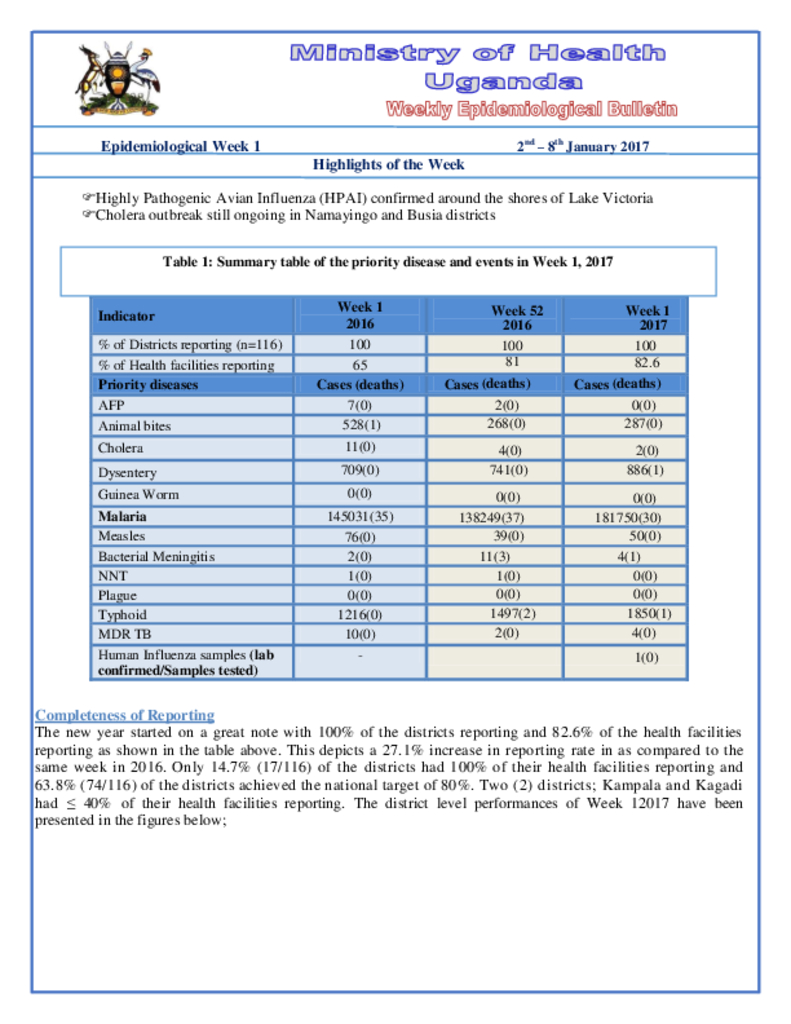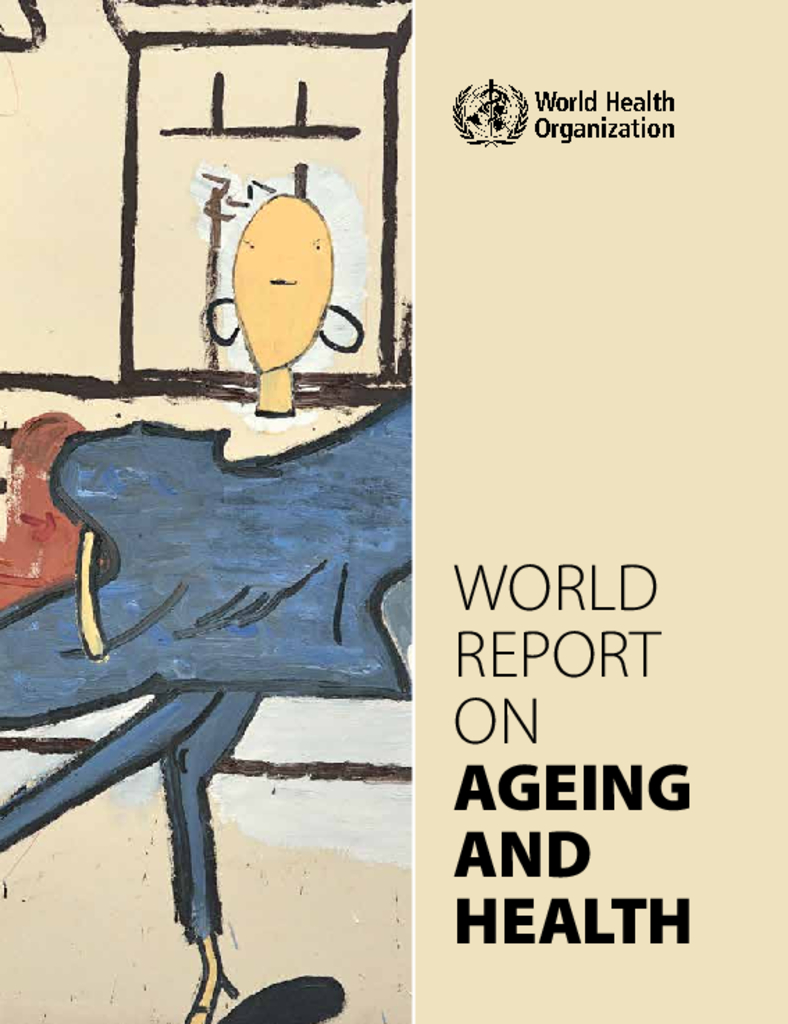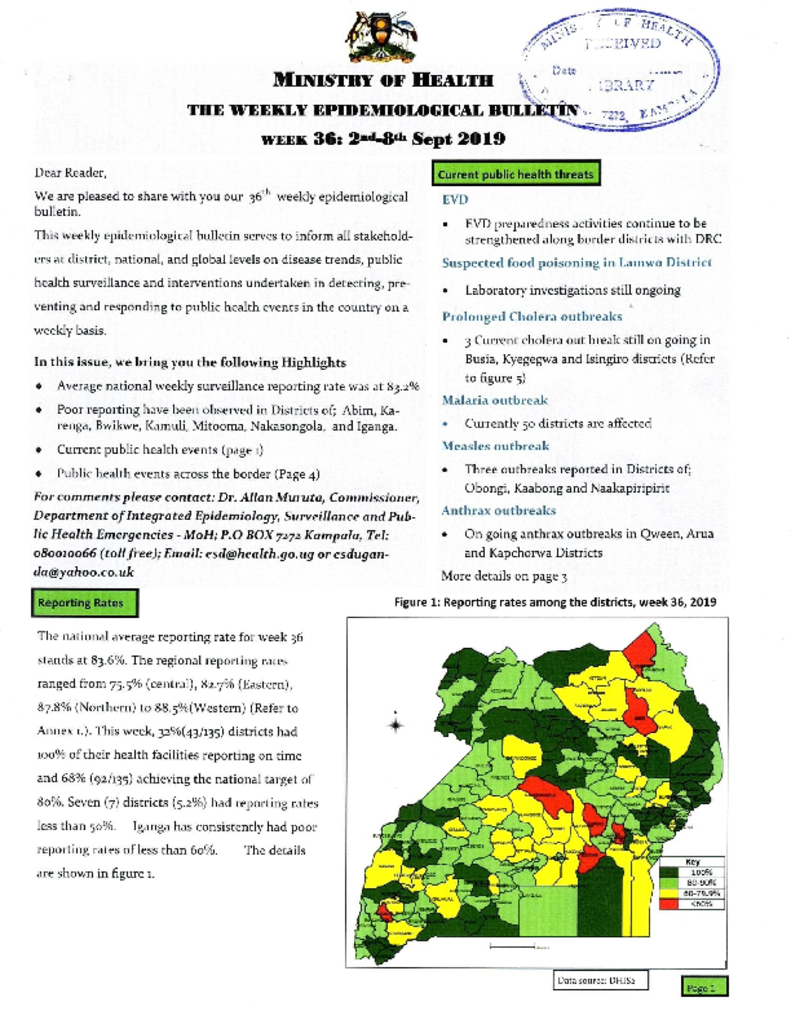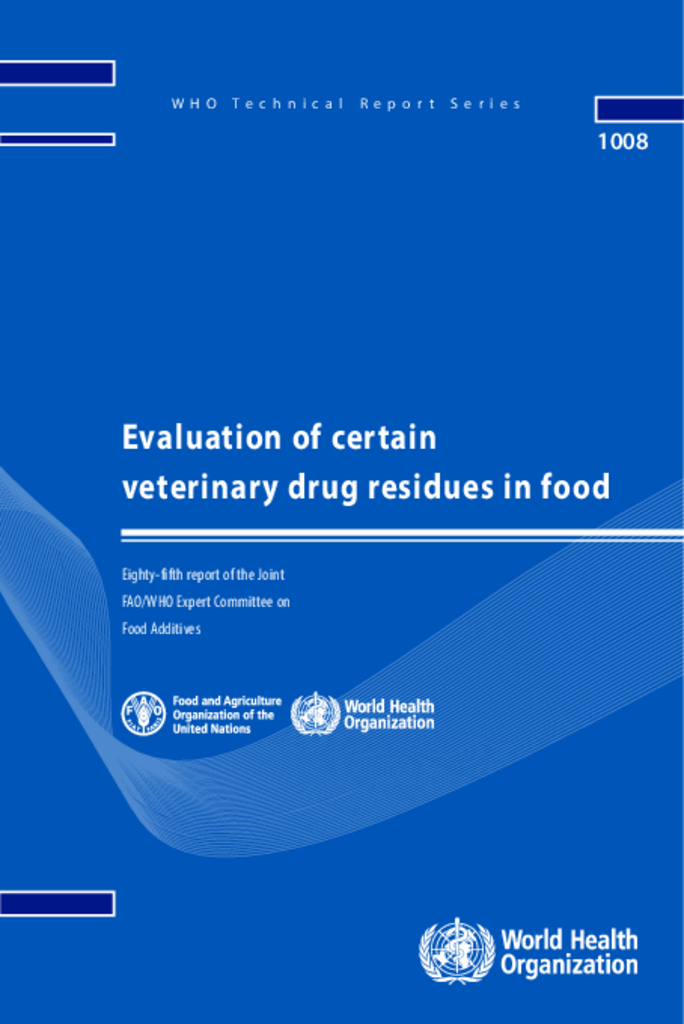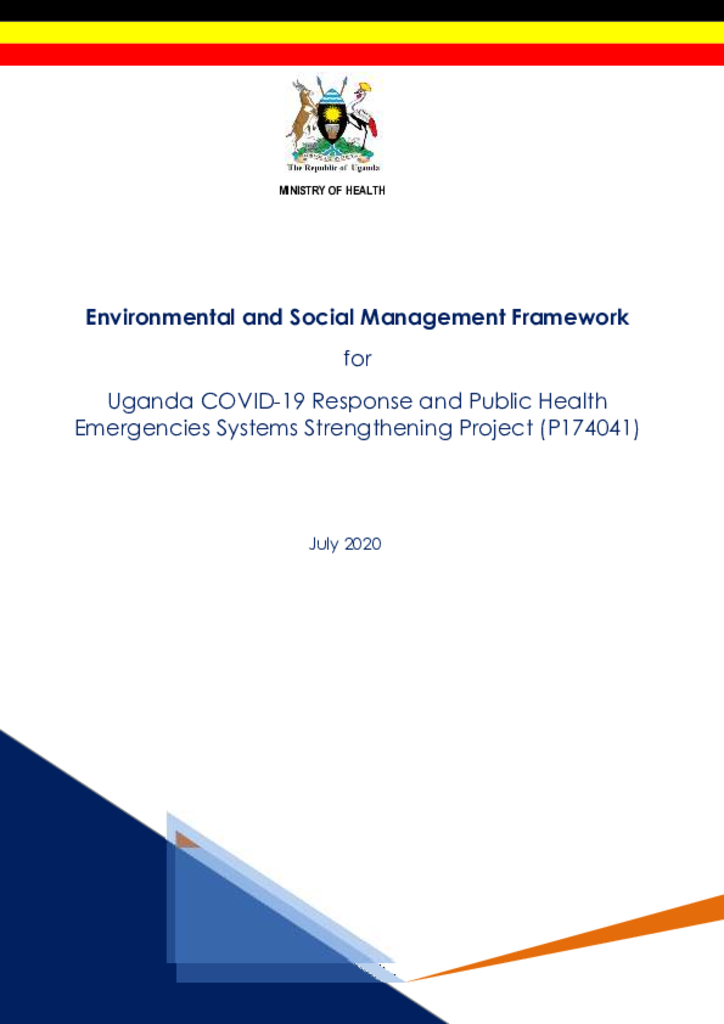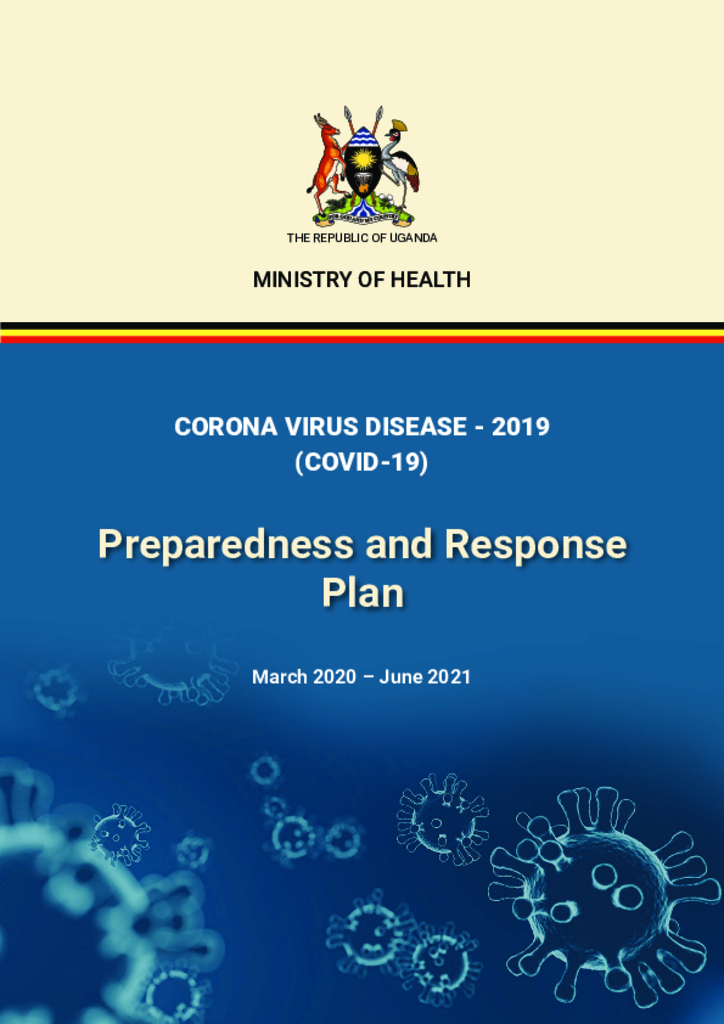The new year started on a great note with 100% of the districts reporting and 82.6% of the health facilities reporting as shown in the table above. This depicts a 27.1% increase in reporting rate in as compared to the same week in 2016. Only 14.7% (17/116) of the districts had 100% of their health facilities reporting and 63.8% (74/116) of the districts achieved the national target of 80%. Two (2) districts; Kampala and Kagadi had ≤ 40% of their health facilities reporting. The district level performances of Week 12017 have been presented in the figures below;
We are pleased to share with you our 37th weekly epidemiological bulletin.
This weekly epidemiological bulletin serves to inform all stakeholders at district, national, and global levels on disease trends, public health surveillance and interventions undertaken in detecting, preventing and responding to public health events in the country on a weekly basis.
In this issue, we bring you the following Highlights, Average national weekly surveillance reporting rate was at 84.9%, Poor reporting have been observed in Districts of; Karenga, Bwikwe, Agago, Kotido, Wakiso, Kitgum, and Iganga. Current public health events (page 1), Public health events across the border
The World report on ageing and health responds to these challenges by recommending equally profound changes in the way health policies for ageing populations are formulated and services are provided. As the foundation for its recommendations, the report looks at what the latest evidence has to say about the ageing process, noting that many common perceptions and assumptions about older people are based on outdated stereotypes
This weekly epidemiological bulletin serves to inform all stakeholders at district, national, and global level on disease trends, public health surveillance and interventions undertaken in detecting, preventing and responding to public health events in the country on a weekly basis.
The Joint FAO/WHO Expert Committee on Food Additives (JECFA) met in Geneva from 17 to 26 October 2017. The meeting was opened by Dr Kazuaki Miyagishima, Director of the Department of Food Safety and Zoonoses of the World Health Organization (WHO), on behalf of the directors-general of WHO and the Food and Agriculture Organization of the United Nations (FAO).
The Environmental and Social Management Framework (ESMF) has been prepared to guide COVID-19 outbreak response activities. This ESMF outlines the framework and mechanisms for environmental and social impact screening, determining extent of required environmental assessment and assessment of environmental and social impacts arising from proposed project implementation, and gives generic guidance on appropriate mitigation measures, and institutional arrangements for monitoring.
The goal of this plan is to provide a framework for coordination and control of COVID-19 by reduction of importation, transmission, morbidity and mortality in a bid to minimize the social economic disruption that might result from this pandemic. The implementation of this plan will be multi-sectoral involving Ministries, Departments & Agencies (MDAs), Development Partners, Non Governmental Organizations (NGOs), private sector entities and other stakeholders.
Pagination
- First page
- Previous page
- …
- 3
- 4
- 5
- 6
- 7
- 8
- 9
- 10
- 11
